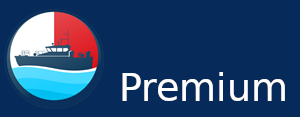In 2025, the Baltic Sea has become a key battleground for electronic warfare, with a sharp rise in GPS and AIS spoofing and jamming incidents—now increasingly impacting coastal regions and major shipping lanes. These disruptions, largely attributed to Russian activity near Kaliningrad, threaten both commercial and military maritime navigation. The timing is no coincidence: Russia is responding to NATO’s expansion, especially after Finland and Sweden joined the alliance. As NATO strengthens its eastern flank, Russia appears determined to destabilize the region through hybrid tactics rather than open confrontation.
For modern shipping, GNSS-based positioning is critical for route planning, port approaches, and safe navigation in restricted waters. However, marine pilots and ship crews now face growing difficulties: incorrect positioning data, unexpected course and speed deviations, and full signal outages are becoming frequent. These interferences not only increase the risk of navigational errors, near misses, or groundings, but also complicate operations in high-traffic or environmentally complex areas where precision is essential.
The psychological and operational impact is mounting. Continuous interference undermines confidence in navigation systems, forcing crews to revert to more manual alternatives such as radar, visual bearings, and inertial navigation. While effective, these methods require greater effort, concentration, and experience—placing added strain on personnel and reducing operational efficiency. Portable Pilot Units (PPUs), commonly used by pilots, must now be equipped to detect spoofing or jamming and issue alerts in real time.
This is not just a safety issue—it’s a strategic one. Russia’s electronic warfare campaign is part of a broader hybrid strategy aimed at undermining NATO cohesion, disrupting commercial operations, and shaping the perception that the Baltic Sea is contested space, not NATO-controlled. The economic impact is already visible: shipping delays, rising insurance premiums, and increasing costs for route planning and monitoring. These disruptions ripple through global supply chains, especially given the Baltic’s role as a vital trade corridor.
Addressing this threat requires a multi-layered response. In addition to technological upgrades such as GNSS interference detection and the use of redundant systems like eLoran or alternative satellite constellations, there must be heightened awareness among pilots and navigators. Rapid identification of position anomalies and suspicious signals is essential. Just as important is international cooperation—to monitor interference patterns, share intelligence, and coordinate countermeasures.
In summary, the surge in electronic interference across the Baltic is not random—it is a deliberate and growing threat. Maritime safety, economic stability, and strategic control of one of Europe’s busiest sea routes are at stake. NATO, maritime authorities, and the shipping industry must respond with urgency, resilience, and unity to safeguard this critical region.
#marinepilots #gnss #navigation #ppu


